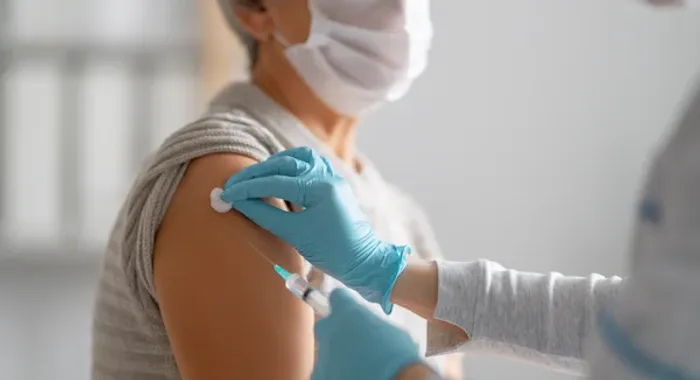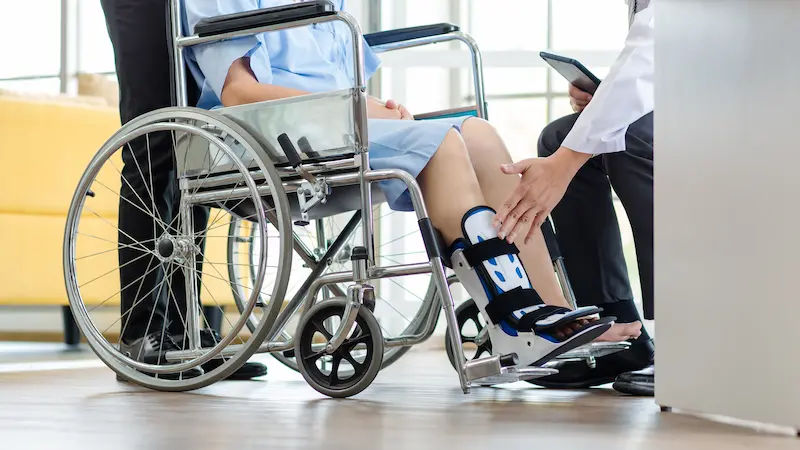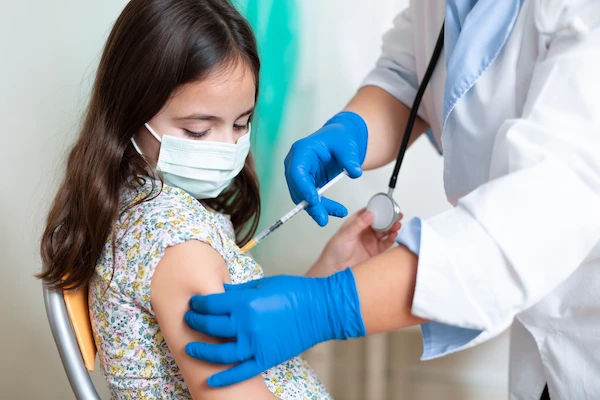Why Vaccination is Your Best Shot at a Healthy Life
Discover why vaccination is essential for personal health and community protection. Learn how vaccines work, their benefits, safety, and FAQs.


Introduction
In a world where health information is at our fingertips, few topics are as consistently crucial—and sometimes misunderstood—as vaccination. We all want to protect ourselves and our loved ones from illness, but with busy lives, it's easy to let preventive measures like vaccines fall by the wayside. However, understanding the profound importance of immunisation is one of the most powerful steps you can take for your long-term well-being. Vaccines are not just a personal shield; they are a collective responsibility that has shaped modern society, saving millions of lives from diseases that were once widespread and deadly. This article will guide you through the science, the societal impact, and the undeniable benefits of vaccines. We'll explore how they work, address common concerns with evidence-based facts, and empower you to make informed decisions for every stage of life. By the end, you'll see that getting vaccinated is a simple, safe, and profoundly effective act of self-care and community care.
How Vaccines Work: A Simple Guide to Immune Defence
Training Your Body's Natural Army
Think of your immune system as a highly sophisticated defence force. When a harmful pathogen, like a virus or bacteria, invades your body for the first time, it can take your immune system days to figure out how to fight it off. This delay is what makes you sick. A vaccine acts as a basic training programme for this defence force. It introduces a harmless version of the germ—either a weakened virus, a dead virus, or just a piece of the germ (like a protein). This "drill" is completely safe and doesn't cause the disease, but it's convincing enough for your immune system to launch a practice attack. In doing so, it creates specialised soldiers called antibodies and memory cells. This process is a fundamental part of your immune system response.
The Difference Between Getting Sick and Getting Protected
The key distinction lies in these memory cells. After the "training" is over, these cells remain in your body for years, sometimes even a lifetime. If the real, dangerous germ ever tries to invade, your immune system recognises it immediately. The memory cells spring into action, orchestrating a rapid and powerful production of antibodies to neutralise the threat before it can establish an infection and make you sick. This is the core benefit of immunisation: it gives your body a head start, allowing it to defeat the enemy without you ever experiencing the illness. It's a far safer way to develop protection than risking the full-blown disease and its potential complications.
The Critical Importance of Vaccines: More Than Just Personal Protection
Shielding the Vulnerable: The Power of Herd Immunity
One of the most compelling reasons for widespread vaccination is the concept of herd immunity or community immunity. When a sufficiently high percentage of a population is vaccinated against a contagious disease, it becomes difficult for the germ to find susceptible hosts to infect. This creates a protective barrier that helps stop the spread of the outbreak. This is crucial for protecting individuals who cannot be vaccinated, including newborns, elderly individuals with weakened immune systems, and people with certain medical conditions (like those undergoing chemotherapy). Their safety depends on the rest of us doing our part. This is a critical answer to the question of how vaccines protect the community.
Consult Top Specialists for Personalised Tips
A Look Back: How Vaccines Changed the World (Smallpox & Polio)
History provides undeniable proof of vaccine efficacy. Smallpox, a devastating disease that killed an estimated 300 million people in the 20th century alone, was declared eradicated globally in 1980 thanks to a worldwide vaccination campaign. Similarly, polio, which once caused paralysis and death in thousands of children each year, has been eliminated from most of the world through vaccination. These are not just historical footnotes; they are testaments to the power of vaccines to alter the course of human health. They stand as monumental achievements in public health.
The Economic and Social Benefits of Widespread Vaccination
The impact of vaccines extends beyond the hospital. When people are healthy, they can go to work, children can go to school, and communities can thrive. Vaccines reduce healthcare costs by preventing expensive hospitalisations and long-term disability treatments. A study by the CDC estimated that among children born between 1994 and 2018, vaccination will prevent an estimated 419 million illnesses, 26.8 million hospitalisations, and 936,000 deaths in the U.S., with a net societal savings of $1.9 trillion. This demonstrates that the cost of vaccination is vastly outweighed by the cost of treatment and lost productivity, making it one of the most cost-effective health interventions available.
The Lifesaving Benefits of Immunisation Across All Ages
Childhood Vaccinations: Building a Foundation for Health
The importance of childhood vaccines cannot be overstated. A child's immune system is still developing, making them particularly vulnerable to serious infections. The recommended immunisation schedule is scientifically designed to protect children when they are most at risk. Diseases like measles, mumps, whooping cough, and Haemophilus influenzae type b (Hib) can have severe consequences for infants and young children, including pneumonia, brain damage, and death. Vaccinating on schedule ensures they are protected during these critical early years.
Adult and Senior Vaccinations: Maintaining Protection Over Time
Immunity from some childhood vaccines can wane over time, and adults are at risk for different diseases. That’s why booster shots, like for tetanus and diphtheria (Td), are necessary. Additionally, vaccines for shingles (which can cause debilitating nerve pain) and pneumococcal disease (a cause of pneumonia) are vital for older adults. Annual flu shots are recommended for almost everyone over six months old, as influenza can lead to serious complications, especially in seniors and those with chronic health conditions. Understanding the benefits of immunisation for adults is key to lifelong health.
Special Considerations: Travel and Pregnancy
Vaccination needs can change based on life events. Travelling to certain parts of the world may require vaccines for diseases like yellow fever or typhoid. Furthermore, vaccines are safe for pregnant women and are strongly recommended. Vaccinations during pregnancy, such as the Tdap (tetanus, diphtheria, and pertussis) and flu shot, protect both the mother and the newborn baby during the first few months of life when they are too young to be vaccinated themselves. If you are planning a pregnancy or travel, it's essential to consult a doctor to create a personalised vaccination plan.
Addressing Common Concerns: Vaccine Safety and Side Effects
Understanding Common, Mild Reactions vs. Severe Adverse Events
Like any medication, vaccines can have side effects, but the vast majority are mild and temporary. These include soreness or redness at the injection site, a low-grade fever, or general fussiness in children. These are normal signs that the body is building protection. Severe allergic reactions are extremely rare, occurring in about one per million doses. Vaccines undergo rigorous testing in clinical trials before approval and are continuously monitored for safety by independent health agencies. The risk of serious harm from a vaccine is far, far lower than the risk of serious complications from the diseases they prevent.
Debunking Myths: Separating Fact from Fiction
Misinformation about vaccines has persisted for years. One of the most debunked myths is the link between vaccines and autism. This claim originated from a single, fraudulent study that has been retracted, and numerous large-scale studies involving millions of children have since found no connection. It is crucial to get information from credible sources like the World Health Organization (WHO) or your healthcare provider.
The Truth About Vaccine Ingredients
Some concerns revolve around vaccine ingredients, such as formaldehyde or aluminium salts. It's important to understand that these substances are used in tiny, safe amounts to ensure the vaccine is effective and sterile. For context, the amount of formaldehyde naturally present in an infant's body is significantly higher than the amount found in any single vaccine. Our bodies produce and metabolise formaldehyde naturally.
Your Vaccination Journey: What to Expect and How to Prepare
Consulting Your Doctor: The First and Most Important Step
The most important step in your vaccination journey is having an open conversation with a healthcare professional. If you have questions about which vaccines are right for you or your family, or if you have specific health conditions, consult a doctor online with Apollo24|7 for personalised advice. They can review your medical history, discuss your concerns, and help you understand the recommended schedule. This is the best way to ensure you are making the safest and most effective choices for your health.
Keeping Track: The Role of Vaccination Records
Maintaining an accurate vaccination record is essential. This helps you and your doctor stay on top of boosters and ensures you are fully protected. Many providers offer digital records, and you can also keep a personal log. If your doctor recommends a blood test to check your immunity levels for certain diseases, Apollo24|7 offers convenient home collection for tests like antibody titres, making it easier to manage your health.
Conclusion
The evidence is clear and overwhelming: vaccination is a cornerstone of modern medicine and public health. It is a simple, safe, and powerful tool that has saved countless lives and freed humanity from the scourge of many devastating diseases. The importance of getting vaccinated extends far beyond your own health; it is an act of solidarity that protects newborns, the elderly, and those who are medically fragile. By choosing vaccination, you are not only investing in your own well-being but also contributing to a safer, healthier community for everyone. Don't let misinformation or hesitation stand in the way of protection. Review your vaccination status today, talk to your healthcare provider, and take your best shot at a healthier future.
Consult Top Specialists for Personalised Tips

Dr. Vivek D
General Physician
4 Years • MBBS
Bengaluru
PRESTIGE SHANTHINIKETAN - SOCIETY CLINIC, Bengaluru

Dr. Anand Ravi
General Physician
2 Years • MBBS
Bengaluru
PRESTIGE SHANTHINIKETAN - SOCIETY CLINIC, Bengaluru

Dr Syed Mateen Pasha
General Physician
2 Years • MBBS
Bengaluru
PRESTIGE SHANTHINIKETAN - SOCIETY CLINIC, Bengaluru

Dr. Syed Ismail Ali
General Practitioner
7 Years • MBBS
Hyderabad
Apollo 24|7 Clinic, Hyderabad

Dr. Debajyoti Goswami
Obstetrician and Gynaecologist
10 Years • MBBS,D.G.O(DNB),Adv. Infertility Tech.(AIIMS),Fellowship in Diabetes(U.K),Comprehensive Abortion Care(Govt. Of W.B), Certificate in Clinical Embryology(AIIMS, BHUBANESWAR)
Bankura
D.G Clinic, Bankura
(25+ Patients)
More articles from Preventive Treatment
Frequently Asked Questions
Is it better to get immunity from getting the disease than from the vaccine?
No. The diseases that vaccines prevent can be serious and even fatal. For example, measles can lead to pneumonia and encephalitis (brain swelling), and chickenpox can lead to bacterial infections of the skin, pneumonia, and sepsis. Vaccines provide a safe way to develop immunity without risking these potentially life-threatening complications.
Can a vaccine give me the disease it's supposed to prevent?
No. With most vaccines, this is impossible. Inactivated vaccines use a killed version of the germ. Live-attenuated vaccines (like MMR or chickenpox) use a weakened form that cannot cause the full-blown disease in healthy people. They might cause minor symptoms, like a mild rash, but this is a sign of the body building immunity, not having the actual disease.
Why do we need a flu shot every year?
Influenza viruses are constantly changing (mutating). Each year, scientists create a new vaccine to target the strains of the flu virus that are most likely to circulate during the upcoming season. Additionally, the immune protection from a flu shot declines over time, so an annual shot is needed for the best protection.
Is it safe for my child to receive multiple vaccines at once?
Yes. Extensive research has shown that receiving several vaccines at the same time is safe and does not overwhelm a child's immune system. Children's immune systems are exposed to countless germs every day. The schedule is designed to protect them when they are most vulnerable to specific diseases.
What should I do if I miss a vaccine dose or fall behind on the schedule?
Don't worry. You don't need to start over. The concept of 'catch-up vaccination' exists for this reason. Contact your doctor, who can create a schedule to get you or your child back on track as quickly as possible.

.webp)


